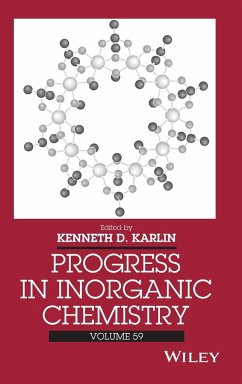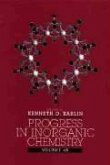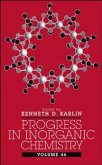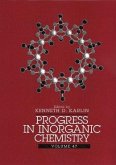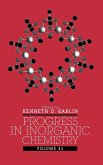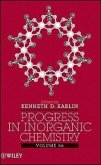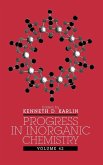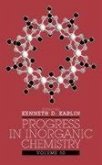PROGRESS IN INORGANIC CHEMISTRY The cutting edge of scientific reporting Progress in Inorganic Chemistry continues its tradition of being the most respected avenue for exchanging innovative research. This series provides inorganic chemists and materials scientists with a forum for critical, authoritative evaluations of advances in every area of the discipline. Volume 59 continues to report recent advances with a significant, up-to-date selection of contributions by internationally-recognized researchers. "This series is distinguished not only by its scope and breadth, but also by the depth and quality of the reviews." --Journal of the American Chemical Society "[This series] has won a deservedly honored place on the book shelf of the chemist attempting to keep afloat in the torrent of original papers on inorganic chemistry." --Chemistry in Britain CONTENTS OF VOLUME 59 - Iron Catalysis in Synthetic Chemistry - A New Paradigm for Photodynamic Therapy Drug Design: Multifunctional, Supramolecular DNA Photomodification Agents Featuring Ru(II)/Os(II) Light Absorbers Coupled to Pt(II) or Rh(III) Bioactive Sites - Selective Binding of Zn2+ Complexes to Non-Canonical Thymine or Uracil in DNA or RNA. - Progress Toward the Electrocatalytic Production of Liquid Fuels from Carbon Dioxide - Monomeric Dinitrosyl Iron Complexes: Synthesis and Reactivity - Interactions of Nitrosoalkanes/arenes, Nitrosamines, Nitrosothiols, and Alkyl Nitrites with Metals - Aminopyridine Iron and Manganese Complexes as Molecular Catalysts for Challenging Oxidative Transformations
Hinweis: Dieser Artikel kann nur an eine deutsche Lieferadresse ausgeliefert werden.
Hinweis: Dieser Artikel kann nur an eine deutsche Lieferadresse ausgeliefert werden.

